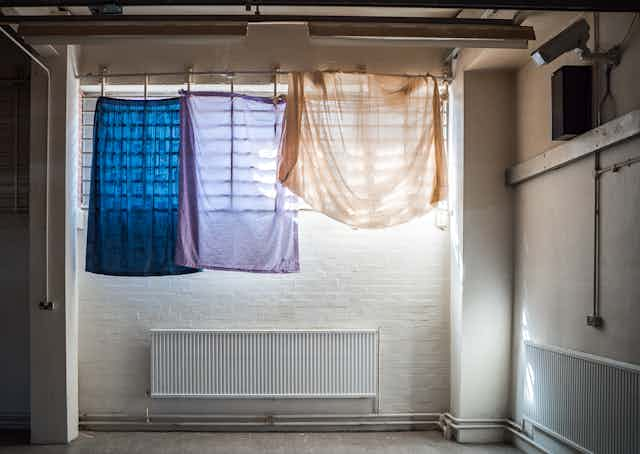The death of 39-year-old Frank Ospina, a Colombian man in immigration detention in the UK, shocked his family. Ospina was awaiting deportation, and his mental health appeared to deteriorate rapidly. He is thought to have taken his own life in March 2023.
I study trauma in the aftermath of war and conflict, and have researched what life is like for the thousands of people in immigration detention in the UK. For me, Ospina’s death is a horrific reminder of how detention centres are failing to meet the complex needs of the people in them.
Last year, more than 20,300 people were held in immigration detention, which includes both immigration removal centres (IRCs) and short-term holding facilities. People may be detained while awaiting their identity or claims to be established, or to be deported.
A 2017 BBC Panorama investigation into Brook House immigration removal centre near Gatwick airport was a rare look at the conditions in these facilities. The revelations prompted a public inquiry, which has now been published, revealing many serious incidents over a four month period in 2017, including “credible evidence” of breaches of human rights law.
The inquiry describes a “toxic” environment, where detainees self-harm, and staff lack compassion and use inappropriate and unnecessary force. In one disturbing incident, a witness described an officer making “inappropriate and humiliating comments towards [two detainees] as they were attempting to take their own lives.”
“The abuse that took place at Brook House in 2017 was unacceptable”, a Home Office spokesperson said.
Government guidance says detention should be used “sparingly and for shortest periods necessary”. But there is currently no limit to how long someone can be detained. For some, it has been years.
Read more: Manston holding facility: does the UK's treatment of asylum seekers violate the law?
According to the Brook House report, the negative impact of unlimited detention is exacerbated by very challenging, noisy living conditions, lengthy lockdowns in rooms, overcrowding and understaffing. These conditions, the inquiry found, are particularly detrimental to acutely vulnerable detainees who may have experienced prior trauma, torture and other harm.
The report concludes that although there were adequate safeguarding procedures in place, these were not used appropriately. What I have found in my research indicates current systems and staff (including healthcare staff) cannot adequately combat the distress created by detention, nor detainees’ preexisting mental health needs.
Mental health in detention
With colleagues, I have conducted ethnographic research and interviews inside several immigration removal centres, including Brook House.
Our findings show many reasons why the current system of detention cannot meet the needs of detainees, including those who are self-harming or having suicidal thoughts. On the contrary, the distress of detention can exacerbate these feelings.
In detention, people are cut off from family and friends. If they are being deported, this separation may be permanent. In a time of extreme vulnerability, a key source of support is taken away.

Detainees we spoke to described emotional pain, feeling trapped or unable to escape. Many feared returning to the countries they left, because of the threat of persecution or extreme poverty, having borrowed vast sums of money to migrate in the first place.
Some were influenced by their surrounding detainees – other people experiencing high levels of distress, and in some cases self-harming or dying by suicide. As one of our research participants said:
Never in my life I thought that I would hurt myself, burn myself. I don’t even feel it when I’m doing it. Sometimes I’m scared to be in the room by myself. But they don’t care. Since I been inside the facility I’m staying right now, two people died. One of them hang himself.
Detainees described feeling surrounded by processes and systems they did not fully understand. They distrusted staff and health professionals, worried that talking about their mental health would negatively affect their cases and lead to deportation. Some also described finding it difficult or impossible to access sufficient legal support.
The Home Office says changes have been made to immigration detention since the abuse uncovered in the Panorama report, including improved training for staff on use of force and better monitoring of safeguarding.
But the death of Frank Ospina is evidence that the effect of detention on mental health continues to be severe and, in some cases, deadly.
None of the reported improvements address one of the key changes needed to immigration detention – limiting the time people spend there to 28 days. Given what I’ve found in my discussions with detainees, I agree.

